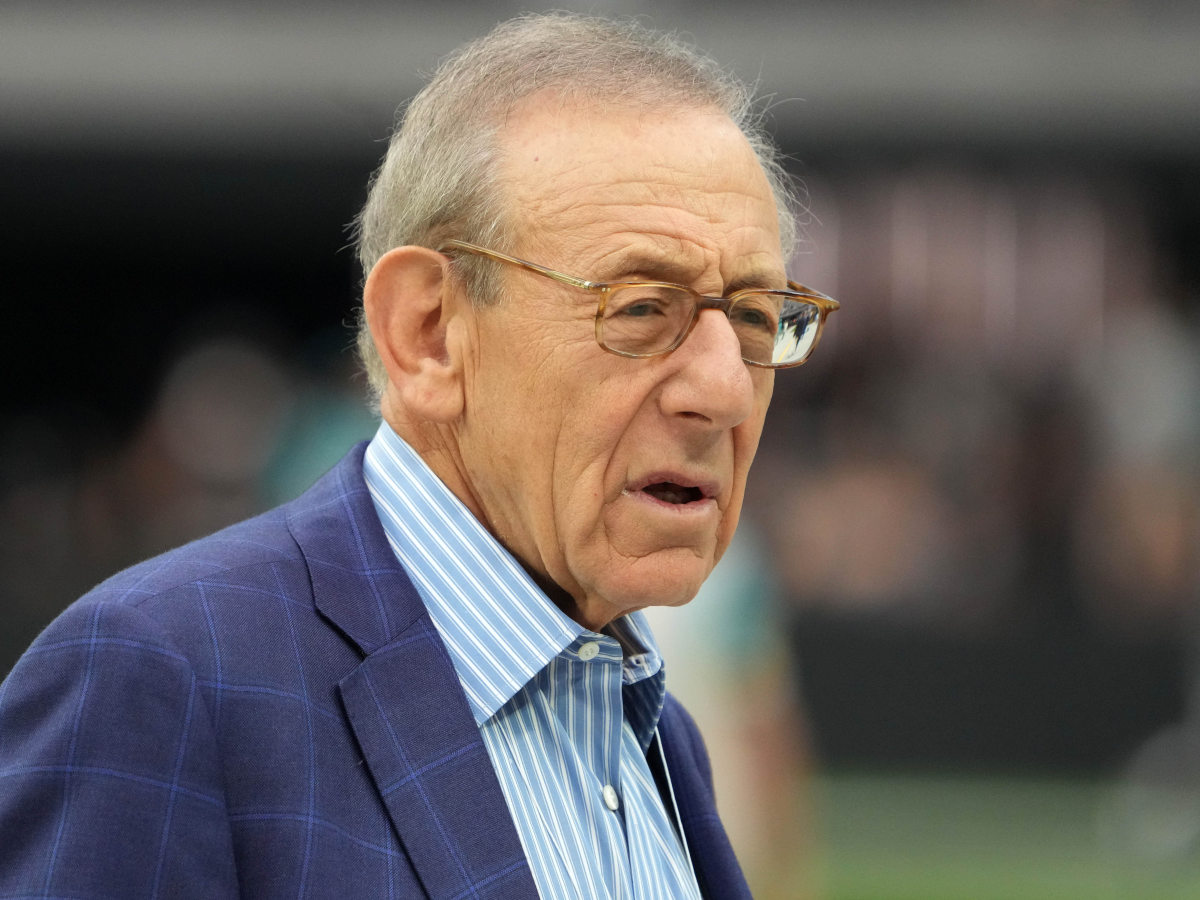NFL Owners' Order of Operations on Full Display in Miami

If the Miami Dolphins had fired general manager Chris Grier and coach Brian Flores Monday, Flores would be more likely to get the same job with another team. Yet Dolphins owner Stephen Ross kept Grier. It was the most surprising move of the NFL week so far, but it shouldn’t be. This is a window into how most NFL owners think.
Billionaires buy sports franchises because they like expensive toys, but that’s not really what franchises are. They are businesses that typically fail. Franchises are usually profitable, sure, but that is not how we measure the success of sports teams. Two of the coaches who were just fired, Chicago’s Matt Nagy and Minnesota’s Mike Zimmer, had winning records. Flores was 19–14 over the last two seasons. Winning more than half your games isn’t good enough—for coaches, or for owners.
Pro sports are probably the most-reported-upon industry in the country, so this failure should not catch owners by surprise. But it almost always does. They are billionaires. They self-identify as successes, and they are accustomed to sycophants telling them how smart they are.
They thought they bought a toy, and now the public is screaming that they don’t know how to use it.
This is when owners stop for a moment of honest self-reflection … oh, who are we kidding? They’re billionaires! Honest self-reflection is for the little people. Owners just want to be told their failure is somebody else’s fault.
It’s easy for them to blame somebody else because for a lot of owners, especially newer owners, their NFL team isn’t even their main business. This is true for most of the owners in the news right now: Miami’s Ross, Minnesota’s Zygi Wilf, Jacksonville’s Shad Khan, Carolina’s David Tepper. So they know the business is failing. They see it every Sunday. But they don’t spend enough time around it to understand why. Often, they don’t even live in the same city as their team.
They still don’t really want to run a whole business. They want an expensive toy.

If you look through the teams with an opening now, you see a common theme: The person with the ear of the owner is the one who survives. Because of the way most organizations are structured, this is usually (though not always) the general manager.
So Ross sticks with Grier and fires Flores. Jacksonville’s Shad Khan keeps general manager Trent Baalke, who has done nothing for the Jaguars except convince Khan to keep him. Baalke was not the reason Khan fired Urban Meyer (Meyer earned that on his own), but he is the NFL’s modern master of convincing owners to blame the coach; he did it with three coaches in San Francisco before owner Jed York fired him.
Chicago and Minnesota just fired their general managers and head coaches together—but before that, those GMs convinced ownership to keep them and fire the previous coach.
In Carolina, the titles are different but the dynamic is similar. In January of 2020, Tepper signed coach Matt Rhule to a seven-year, $62 million deal. Since then, Carolina has fired a general manager (Marty Hurney) and a highly regarded offensive coordinator (Joe Brady), but Rhule gets to stay—mostly, it seems, because hiring him was the owner’s idea.
The Giants are apparently keeping Joe Judge after an entire season of self-inflicted wounds, and why? The owners like him, and they don’t want to change coaches every two years. Well, nobody wants to change coaches every two years. But if the alternative is keeping a stumbling coach—and, worse, letting him help choose the new general manager—then you do what has to be done.
In Chicago, the McCaskey family fired coach Matt Nagy and general manager Ryan Pace—but kept team president Ted Phillips. Phillips has been in his job for more than two decades and the team has mostly failed, but hey, the McCaskeys like him.
If getting jobs is about who you know, then keeping jobs is about who you can convince. This often leads to owners keeping the wrong person, as Miami apparently did, but it also creates a climate in which failure is self-perpetuating. If everybody understands that the key to longevity is being an owner’s favorite, then infighting and political positioning take priority over winning.
Too many owners want to own a team but don’t actually want to do what it takes to run a team well. That means firing people you like, taking hits from the media that you won’t enjoy, and putting in the time to honestly evaluate every aspect of a franchise. Or you can do what many owners do: listen to whomever is standing closest to you, and hope that they’re right.
• Flores Firing Hints at Bigger Problems Facing Dolphins
• Matt Nagy Couldn't Recapture His First-Year Magic
• Mike Zimmer and the Vikings' Era of What Could Have Been
• Vic Fangio Firing Highlights Broncos' Biggest Flaw
• Why Sean Payton Should Consider Moving On From the Saints
